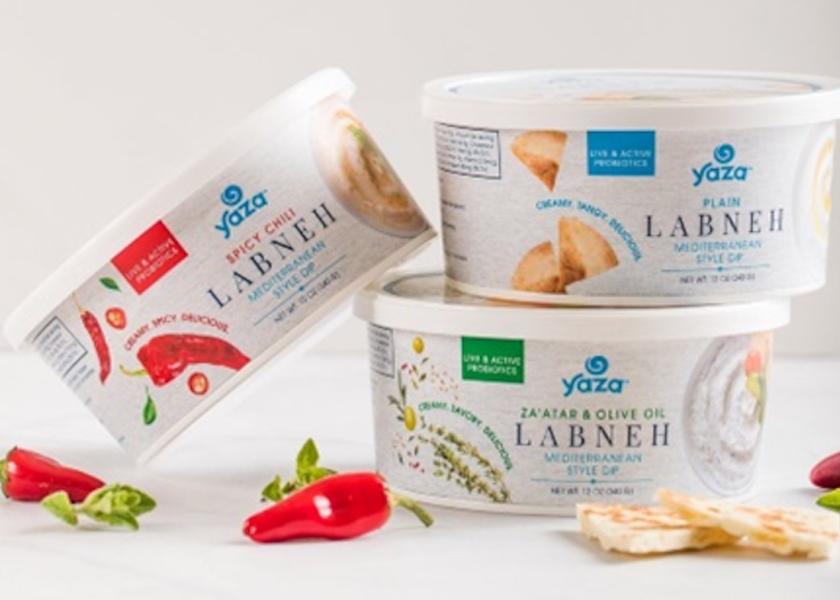Labneh: The New Kid on the Dairy Foods Block

Some call it concentrated yogurt. Others call it yogurt cheese. No matter the description, labneh is an ancient Middle Eastern dairy staple that is making a fresh appearance in the U.S. dairy case.
Labneh (pronounced “leb-NAY”) is produced by adding salt to a yogurt base and then straining off the liquid whey portion. The result is a thick, creamy spread with a similar consistency to cream cheese, but with higher acidity and a tangy taste.
Nutritionally, it is low in fat and carbohydrates, high in protein, and rich in gut-benefitting probiotics. Like nearly all dairy products, labneh delivers many important micronutrients, like vitamin A, vitamin B12, and calcium. But it also has very low lactose levels, making it an appealing choice for individuals with lactose intolerance.
Its versatility is another plus. Labneh can often be used in the same fashion as cream cheese and sour cream. It also makes a healthy and nutritious dip that is lower in fat than its Mediterranean cousin, hummus. Compared to standard cream cheese, it has about a third fewer calories; 6 times less fat and cholesterol; an extra gram of protein per serving; and 40-50 mg of potassium, of which cream cheese contains none.
Yaza Foods launched its line of labneh on the U.S. East Coast in August 2023, with goals of being in all major U.S. cities in 6 months, and the nationwide, signature labneh brand in the U.S. within 5 years.
Yaza prides itself in producing a clean, traditional labneh containing only 2 ingredients – pasteurized, cultured milk and salt -- with no added thickeners or preservatives. Yaza labneh is being manufactured at a cheese plant in New York’s Catskill Mountains, using milk sourced from nearby, local dairies. It is sold in 3 flavors – plain, Za’atar & Olive Oil, and Spicy Chili.
Other labneh brands currently marketed in the U.S. include Cedar’s, Karoun, Pinar, and Byblos.
Labneh manufacturers hope to capitalize on U.S. consumers’ quests for novelty, nutrient density, and varied ethnic eating experiences, while embracing the growing demand for dips and spreads. In just one year, that market segment jumped 12% between 2019 and 2020, with projected continued growth of about 5% per year through 2029.
For more industry news, read:
- New Indoor Feed Centers Planned in California
- South Dakota Governor Supports the State's Massive Dairy Industry Growth
- Producers Can Now Enroll in Dairy Margin Coverage for This Year
- Four Steps Veterinarians Can Take To Help Producers Transition To Beef-On-Dairy
- Milk Production Drops for The Seventh Month in A Row
- Uniting Technology with the Youngest Herd Members on Your Farm







